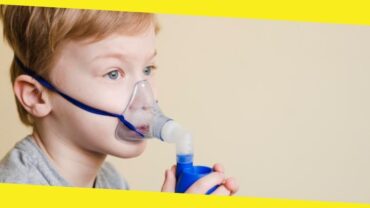4 Most Common Mental Health Issues Among Young Adults
Most people experience a rapid transition in life between the ages of 18-25. It’s in that stage where you’re somehow stuck between an adolescent who’s still learning things and an adult who’s about to take on mature responsibilities. This is also where young adults experience physical, mental, and emotional growth.
For others, this could be an exciting time as they embark on doing things by themselves like moving out, going to college, getting their first job, or traveling solo. On the other hand, some may see this stage as nerve-racking or overwhelming due to the pressures surrounding the idea of becoming an adult. However, when these immense feelings and thoughts are not well-managed, they may develop mental health issues.

What Are The Most Common Mental Health Issues Among Young Adults?
Common mental health issues may start settling in during this period when young adults are experiencing changes in their life. They are prone to feeling anxious, nervous, worried, and experiencing mood swings. They may also seek more external attention, especially when exposed to new people and unfamiliar situations. However, this doesn’t necessarily mean that these feelings will automatically turn into mental health issues. Sometimes, you can also attribute it to the environment and people they grew up with during their earlier years.
This article will discuss the most common mental health issues often experienced by young adults during their growing period.
1. Depression
Depression is regarded as the most dominant mental health issue among young adults. That’s because, at this stage, they may experience numerous changes in their life that could adversely affect their self-esteem and confidence. For example, going off to college can be a huge transition for a young adult. They may undergo different challenges such as dealing with unfamiliarity, trying to fit in with others, and deciding a career path. Ultimately, these could make them feel insecure, alone, sad, anxious, or rejected.
When these emotions are not appropriately addressed, it could result in depression. Thus, if you’re a parent of a young adult, make sure to stay in touch with your child and guide them towards this huge transition. If they’re struggling in settling down or deciding their career path, don’t put them under more pressure than it already is. It’s also recommended that you watch out for depressive symptoms like:
- Feeling extremely tired
- Feeling lonely or useless
- Crying or weeping regularly
- Sleeping problems
- Lack of appetite or high appetite
If you notice most of these symptoms of depression from your child, you can check out this site or other mental health treatment centers and encourage your child to seek consultation. A professional mental health therapist can provide personalized treatment to ensure it assists your child’s needs and specific situation.

2. Anxiety
Another prevalent mental health issue among young adults is anxiety. Here are the following types of anxiety that young adults may experience:
- Generalized Anxiety Disorder (GAD)
This is when a person feels excessive worry and anxiety about daily life events, especially when there’s an upcoming event or activity. In this situation, the person may find it difficult to control his worry, interfering with their focus on the tasks at hand. Some young adults experience this when they’re constantly faced with overwhelming challenges like doing a job interview, taking on a project, or moving to an unfamiliar city.
- Social Anxiety Disorder (SAD)
SAD is the feeling of extreme anxiety or distress when placed in a social situation or crowd. Young adults may develop this disorder as they deal with a new environment alone. However, this can also be attributed to their past experiences or traumas as a child.
- Panic Attack Or Panic Disorder
A young adult may experience panic attacks or panic disorder when faced with major life stresses like death, divorce or separation of the parents, unplanned pregnancy, or moving out. Symptoms of panic disorder may include accelerated heart rate, shaking, sweating, palpitations, and nausea.
- Obsessive–Compulsive Disorder (OCD)
OCD is a disorder that causes recurring unwanted thoughts or obsessions that urges them to do something repeatedly. The specific type of compulsion and obsession may vary for each person. This issue often happens to young adults who grew up with people who practice the same compulsive behaviors.
- Posttraumatic Stress Disorder (PTSD)
A young adult can be diagnosed with PTSD, especially when they’ve been through traumatic events like childhood or domestic abuse, sexual or physical violence, serious health problems, or exposure to traumatic events (e.g., accidents, death). People with PTSD experience intense thoughts and feelings that stem from traumatic events.
Young adults who have an anxiety of any kind are likely to be fearful and withdrawn in most situations. They’re also often unresponsive or over-emotional. Thus, they’re recommended to seek professional help and practice self-care habits more frequently.
3. Eating Disorders (ED)
During the pre-adulthood stage, young adults become more exposed to the influence of media along with the increasing pressures of society, especially regarding physical appearance. As they explore more crowded environments, they get to meet people with different physical preferences to theirs. And because of this pressure, they might begin to develop and experience eating disorders to conform to society’s standard of physical appearance or weight.
Eating disorders can also be caused by genetics, other psychological problems, or family relationships that affect their self-esteem. Some eating disorders prevalent to young adults are anorexia nervosa (anorexia), bulimia nervosa (bulimia), and body dysmorphia.
You can often identify a person with an eating disorder because they’re often fearful about gaining weight. Hence, they look slimmer than average. An eating disorder also resembles addiction in the sense that it’s not something you can casually quit or outgrow with. Thus, when you know someone who has ED, you can encourage them to seek professional help and help them be more comfortable with their own body.
4. Mood Disorders
Experiencing mood swings is normal in times of stressful situations and hormonal fluctuations. However, some young adults may experience more persistent mood swings due to major life changes like troubles in school, moving to a new address, the death of a loved one, or changing careers. Since young adulthood is a stage wherein lots of new experiences and rapid changes happen, they can contribute to mood disorders. Mood disorders can also run in families and could eventually influence the young adults in the house.
Depending on the type of mood disorder, the person may experience racing thoughts, low self-esteem, excessive guilt, lower or higher energy, and ongoing sadness. Thankfully, attending therapy consultations, practicing self-care, and taking appropriate medications may help alleviate mood disorder symptoms. The most common mood disorders are:
- Bipolar disorder
- Major depression
- Dysthymia
- Substance-induced mood disorder
Takeaway
Regardless of what type of mental health issue young adults may have, they must have access to medical help and other professional treatments to alleviate their symptoms. Since young adults are more prone to feeling overwhelmed, stressed, nervous, anxious, or insecure about their lives, having their families or loved ones to emotionally support them will help reduce their chances of having these mental health issues.
Meanwhile, parents should continue keeping an eye on their young adults despite their newfound freedom and sense of responsibility. You can still guide and help them handle their problems, especially when dealing with a mental health issue.
Recommended For You
4 Tips for Asthma Prevention
Most Inside
Most Inside offers high-quality recommendations and valuable updates to enhance all aspects of your life, providing premium guidance and enriching experiences.




